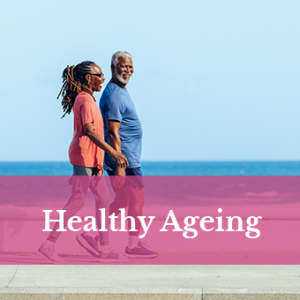
Sexuality and Intimacy in Older Adulthood: Descriptions of Change Among Men and Women
Presenter(s):
Monique Maqungo, Inathi Maxhakana, Myrna Van Pinxteren and Makandwe Nyirenda, Burden of Disease Research Unit, South African Medical Research Council., South Africa
Abstract
Objective: To explore how older men and women perceive and describe changes in sexual desire, sexual activity, and the significance of intimacy as they age.
Methods: A qualitative research design was used to explore the attitudes and perceptions of sexuality among adults aged 50 years and older. Data were collected through semi-structured, in-depth individual interviews with 24 participants. These interviews aimed to elicit detailed personal narratives about changes in sexual desire, sexual activity, and intimacy in later life. The interviews were transcribed verbatim and analysed using thematic analysis to identify key patterns and themes. NVivo software was used to assist with data organization and coding throughout the analytical process.
Results: Thematic analysis revealed that some older adults remain sexually active, though often in secrecy due to societal stigma and discouragement surrounding sexuality in later life. Widowed women, in particular, may opt to remain single to avoid the risk of HIV infection. A common belief persists that men can remain sexually active into old age, while older women, especially those in long-term relationships, face complex challenges involving trust, fear, and limited control over their sexual health. “I didn’t understand how I got it because I was not dating anyone, whereas I got it from this man. Men are active; they don’t age, they are not like you, as a woman. When a woman is old, she doesn’t pay much attention to men. It’s okay when you can just chill and sleep, but men don’t age.” IDI166W60BH
Their vulnerability is heightened by factors such as relationships with younger partners or engagement in transactional sex. “Nowadays you find an old man sitting with young women and sometimes end up finding a partner there. These days, even the children drink, they end up being in relationships with these old men because old men attract them with money.” IDI249W57RKN
HIV and AIDS are frequently perceived as concerns only for younger people, leading to misconceptions and underestimation of risk among the elderly. A key issue identified is the limited ability of older women to negotiate condom use, particularly in relationships where male partners do not practice safe sex. “You won’t be able to use a condom because where will you say you got it from, also because you have never used it, that is hard.” IDI195M66BH
Conclusions: These findings underscore the urgent need for age-appropriate education, awareness campaigns, and supportive interventions that empower older adults—especially women—to protect their sexual health while navigating the realities of aging and intimate relationships.
Bio(s):
Dr Monique Maqungo earned her PhD from the University of the Western Cape. She transitioned from Bioinformatics to Public Health and has worked as a project coordinator and data manager for the CDC-funded National Cause-of-Death Validation Study. She has completed all coursework and the mini thesis for a Master of Public Health (MPH) in Epidemiology and Biostatistics and undertook a research internship to strengthen her skills in public health research.
Dr Maqungo currently serves as a Senior Scientist on the Strengthening Mortality Surveillance study, which investigates the role of treatment interruption in HIV- or TB-related deaths using data from verbal autopsy narratives. She is also involved in Sexual Health, HIV, and Co-morbidity with Non-communicable Infections among Older Persons (SHIOP) study, as well as research on maternal multimorbidity.
Inathi Maxhakana is a Senior Research Technologist with a Social Sciences background working on the Eastern Cape Cancer Registry and currently doing masters in Public Health with the University of the Western Cape with a mini-thesis focusing on the barriers and facilitators to early application of the Child Support Grant (CSG) in Langa Township, Western Cape.
